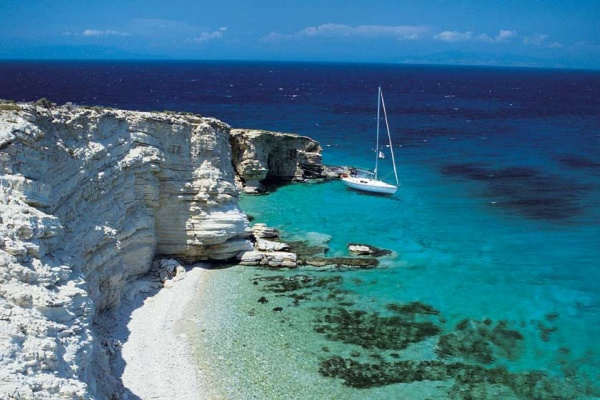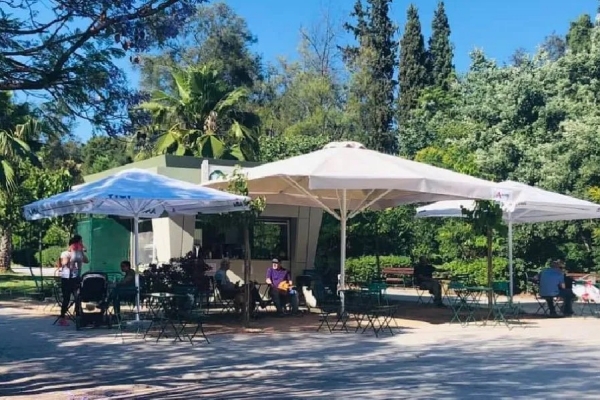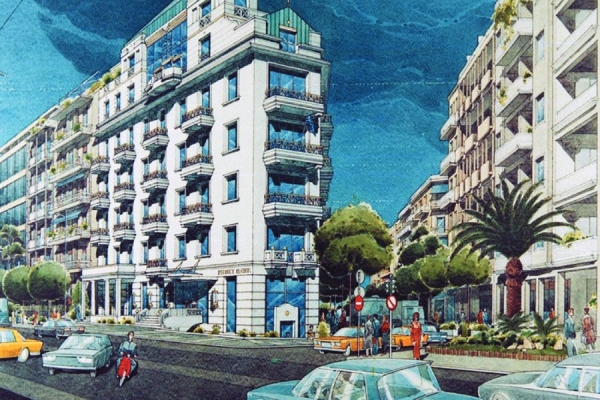The island of Kos is a dazzling mixture of cultures. The remnants of the island’s significant history allude to earlier times, when different civilizations and traditions thrived on its land and foreign conquerors imposed their wealth and power on its people for years. From the ancient sites to the Orthodox churches and the Catholic cathedral, from the mosques and the Jewish synagogue to the local insular architecture, from the magnificent Italian public buildings, the Knights Castle to the early-Christian ruins, the Roman noblemen villas and the Roman Conservatory (Odeon), all wrapped up in one picturesque canvas of warmth and hospitality.
What to see
The city of Kos urges you to walk its paved streets or pedal its exceptional 13klm long bicycle road stretching all the way from Faros beach to the end of the beach of Psalidi, with many side paths. You should most definitely visit the Castle of the Knights, the Archeological Museum that displays an important and rich collection of artifacts, and the Temple of Hercules with the enormous Hippocrates Plane tree still standing aside (it is said that Hippocrates used to teach his students under its shade). The Sanctuary of Asclepios (Asclepieion), one of the most important archaeological sites on the island, built on a hill not far from the city. The Roman Conservatory (Odeon), Kos’ most exceptional public buildings, nowadays hosts cultural events. The ancient Agora of Kos, in the city, and the Temple of Apollo at Kardamena. The Ancient House-Hippocrates Garden cultural centre, at Mastichari, will take you back to the 5th century as it is an exact replica of an ancient Greek habitat, The Church of St. John the Baptist, the infamous Roman villa, Caza Romana, are also worth visiting.

Where to swim
At the villages of Tigkaki, Mastichari and Kardamena, the beaches are sufficiently organized and usually packed with tourists. At Limniotis, you will find crystal clear waters, but with seaweeds. Kefalos and its neighbouring beaches are sandy and easily accessed with almost all conveniences. If you can handle bumping dirt roads, you should go to Agios Theologos where there are also many beautiful tavernas around. On the road to Psalidi and Agios Fokas, you’ll find beautiful cosmopolitan beaches. At Thermes you will swim in hot, revitalizing, waters (thermal baths). At Chora you could also sign up for one of the boat excursions that will take you to Pserimos, a little nearby island with amazing waters, and even further to Kalymnos (buy one of its world famous sponges).
Where to stay
Kos has grown in in touristic accommodations, providing limitless options for any budget or design and style preferences. Scattered gracefully across the island, you can choose among prodigiously luxurious hotels or smaller and more intimate ones, rooms and studios, villas and houses, others modern and contemporary designed, others retaining the traditional color and insular architecture. We recommend, at the city of Kos: Agios Konstantinos (+30 23301). At Kardamena, Daidalous (+30 58500), at Tigkaki, the Tigkaki Beach (+30 69446-7) literally on the beach, with a great buffet and a close by bus stop (at 100 meters). On the beach of Lampi, the Atlantis Hotel (+30 28731) is a first class accommodation.
Where to eat and drink
Fresh fish or well done steaks and juicy meat bites or whether your appetite calls for quick and take-away meals, Kos will not let you down. You will taste amazingly cooked Greek cuisine at Elia’s, in the city, and at Platanos restaurant (by the Plane tree of Hippocrates) as well. Near Kaminia Beach at Kardamena, there is Fontas, also serving deliciously prepared Greek dishes, and if you care for dessert, you will then go to Platani, a sweets and pastry heaven. For “less-calorie” choices, you should try the Adaggio’s cold sandwiches, baguettes and European snacks accompanied by freddo cappuccino coffee zips, at Antimaheia (by the road).
Area code: +30 22420
Police: +30 22222
Port Authorities: +30 26595
Municipality: +30 (22423) 60400
First Aid Units: +30 22300














